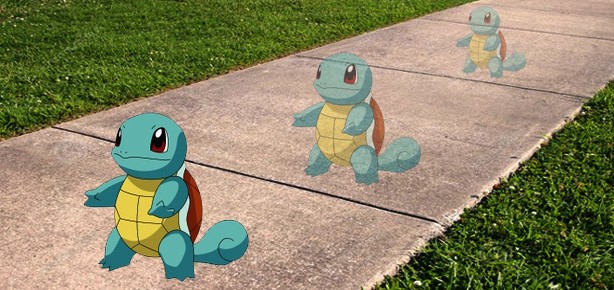
If your mind hasn’t already been totally numbed by tech news, consider pointing it towards the newest phenomenon that everyone is talking about: Pokémon GO.
I won’t bother taking the time to describe how it works, because by now the odds are that you already know. You probably already know that experts and non-experts alike have already weighed in on how the game is either the next best augmented thing since sliced bread, or an omen predicting the demise of the human race.
It’s the “OR” that’s important in that sentence, because rather than weighing the pros and cons of this new game, or considering what we psychologists call “individual differences” in how something affects people, we sink into the typically polarized and often simplistic posture of proclaiming it as “good” or “bad” according to carefully selected criteria. Here are just a few of those either/ors:
— It encourages players to go for walks, which is physically good for them; OR players staring into their screens will end up walking into traffic, which is, obviously, physically bad for them.
— It encourages players to explore new places they have never seen before; OR we’ve arrived at the sad condition of needing an augmented reality game to force us out of total cyberspace immersion and into the “real” world, where we actually pay minimal attention to the place and much more attention to the imaginary creatures hiding there.
— It encourages players to meet and socialize with other players; OR we’ve once again sunk to a low place where we rely on games to meet new people, only to talk about the game.
— It’s a fun, playful, and energizing game, so just leave the players alone and let them enjoy it; OR we now have to navigate around people wandering around like zombies, getting in your way, intruding into places where they are not wanted.
So what’s the correct answer? As I often include an option E on the multiple choice exams for my students, “all of the above.”
The real issue, the one that keeps coming back again and again in this ongoing technology hype cycle of ours, is the deeply engrained, knee-jerk reaction we have to The Next Big Thing.
In Psychology of the Digital Age, I refer to it as a type of cyberspace mania. We grow bored, frustrated, maybe even depressed with how our current gadgets are not making us happily fulfilled, as some of those gadgets promised, and so we wait until a new one appears to revive our manic joy. We have become deeply addicted to the comings and goings of all things technological, and not just to the thing itself, but also to all the controversies that invariably surface with each new one.
We need some kind of technology mood stabilizer, something to even out our reactions to the up and down digitized waves that keep coming at us. Even better, we need to dampen those waves, for the roller coaster ride isn’t really taking us anywhere. Technology tends to create as many problems as it solves.
Like many other games and social media phenomenon, Pokémon Go will be going, going, and then gone. If you want to know what the next big thing is, you’ll probably find out tomorrow.
Latest Comments
Have your say!